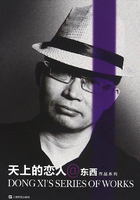The following is the reason Varro gives when he confesses that he had written first concerning human things, and afterwards of divine things, because these divine things were instituted by men:--"As the painter is before the painted tablet, the mason before the edifice, so states are before those things which are instituted by states." But he says that he would have written first concerning the gods, afterwards concerning men, if he had been writing concerning the whole nature of the gods,--as if he were really writing concerning some portion of, and not all, the nature of the gods; or as if, indeed, some portion of, though not all, the nature of the gods ought not to be put before that of men.How, then, comes it that in those three last books, when he is diligently explaining the certain, uncertain and select gods, he seems to pass over no portion of the nature of the gods? Why, then, does he say, "If we had been writing on the whole nature of the gods, we would first have finished the divine things before we touched the human?" For he either writes concerning the whole nature of the gods, or concerning some portion of it, or concerning no part of it at all.If concerning it all, it is certainly to be put before human things; if concerning some part of it, why should it not, from the very nature of the case, precede human things? Is not even some part of the gods to be preferred to the whole of humanity? But if it is too much to prefer a part of the divine to all human things, that part is certainly worthy to be preferred to the Romans at least.For he writes the books concerning human things, not with reference to the whole world, but only to Rome; which books he says he had properly placed, in the order of writing, before the books on divine things, like a painter before the painted tablet, or a mason before the building, most openly confessing that, as a picture or a structure, even these divine things were instituted by men.There remains only the third supposition, that he is to be understood to have written concerning no divine nature, but that he did not wish to say this openly, but left it to the intelligent to infer; for when one says "not all," usage understands that to mean "some," but it may be understood as meaning none, because that which is none is neither all nor some.In fact, as he himself says, if he had been writing concerning all the nature of the gods, its due place would have been before human things in the order of writing.But, as the truth declares, even though Varro is silent, the divine nature should have taken precedence of Roman things, though it were not all, but only some.But it is properly put after, therefore it is none.
His arrangement, therefore, was due, not to a desire to give human things priority to divine things, but to his unwillingness to prefer false things to true.For in what he wrote on human things, he followed the history of affairs; but in what he wrote concerning those things which they call divine, what else did he follow but mere conjectures about vain things?
This, doubtless, is what, in a subtle manner, he wished to signify; not only writing concerning divine things after the human, but even giving a reason why he did so; for if he had suppressed this, some, perchance, would have defended his doing so in one way, and some in another.But in that very reason he has rendered, he has left nothing for men to conjecture at will, and has sufficiently proved that he preferred men to the institutions of men, not the nature of men to the nature of the gods.Thus he confessed that, in writing the books concerning divine things, he did not write concerning the truth which belongs to nature, but the falseness which belongs to error;which he has elsewhere expressed more openly (as I have mentioned in the fourth book(1)), saying that, had he been founding a new city himself, he would have written according to the order of nature; but as he had only found an old one, he could not but follow its custom.
CHAP.5.--CONCERNING THE THREE KINDS OF THEOLOGY ACCORDING TO VARRO, NAMELY, ONEFABULOUS, THE OTHER NATURAL, THE THIRD CIVIL.
Now what are we to say of this proposition of his, namely, that there are three kinds of theology, that is, of the account which is given of the gods; and of these, the one is called mythical, the other physical, and the third civil? Did the Latin usage permit, we should call the kind which he has placed first in order fabular,(2)but let us call it fabulous,(3) for mythical is derived from the Greek <greek>muqos</greek>, a fable; but that the second should be called natural, the usage of speech now admits; the third he himself has designated in Latin, calling it civil.(1) Then he says, "they call that kind mythical which the poets chiefly use;physical, that which the philosophers use; civil, that which the people use.As to the first I have mentioned," says he, "in it are many fictions, which are contrary to the dignity and nature of the immortals.For we find in it that one god has been born from the head, another from the thigh, another from drops of blood; also, in this we find that gods have stolen, committed *****ery, served men; in a word, in this all manner of things are attributed to the gods, such as may befall, not merely any man, but even the most contemptible man." He certainty, where he could, where he dared, where he thought he could do it with impunity, has manifested, without any of the haziness of ambiguity, how great injury was done to the nature of the gods by lying fables; for he was speaking, not concerning natural theology, not concerning civil, but concerning fabulous theology, which he thought he could freely find fault with.















